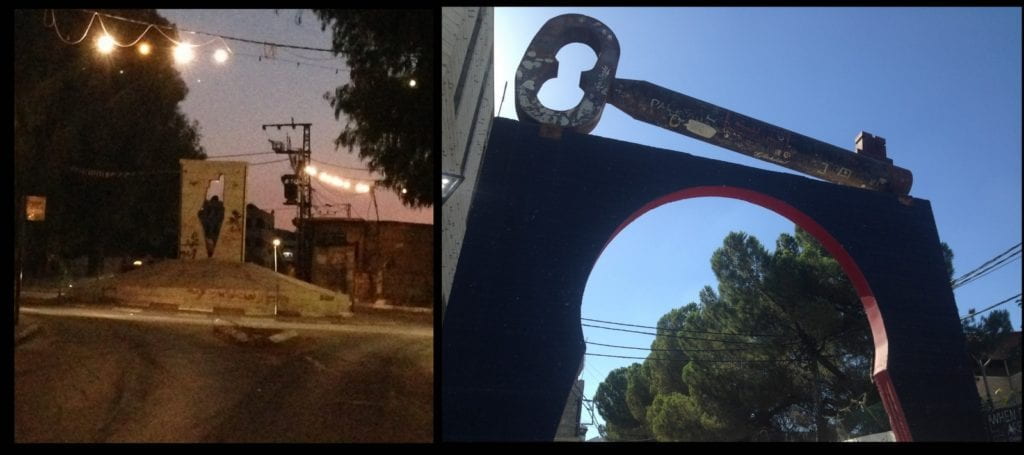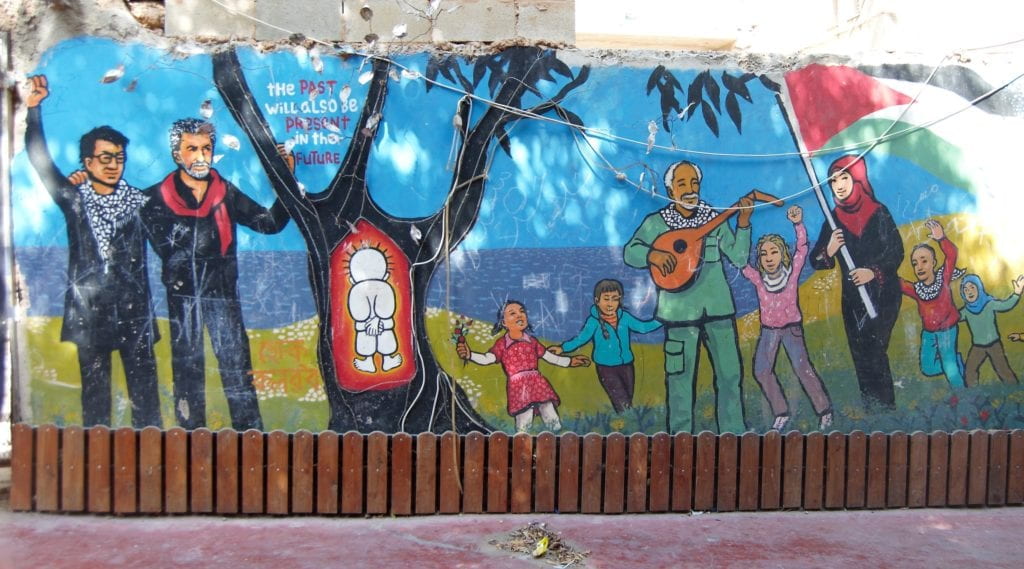Rashi Mishra
The FreedomTheatre
Jenin Refugee Camp, Palestine
Walking through the narrow lanes of Jenin refugee camp, one feels the history of the area mark its presence at every corner and every turn of the way. The walls are full of graffiti of keys (symbol of right of return for Palestinian refugees) and Handalas (iconic cartoon of a Palestinian refugee child). There are posters of young martyrs holding guns and smiling through the frames. One of the roundabouts inside the camp has a big statue of a pre-1948 Palestinian map engraved with names of all the Palestinian villages that were homes to the refugees living in this camp.

Jenin Refugee camp, established in 1953 by the UNRWA (United Nations Relief and Works Agency for Palestine Refugees in the Near East), is one of the 19 camps that were built for Palestinian refugees after the 1948 Nakba (ethnic cleansing of Palestinians under Zionist leadership and foundation of Israel as a nation-state) that forced two-thirds of Palestinians out of their homes. 70 years later, the refugees still await their return to their homes. Their struggle for freedom from the occupation both involves and is kept alive by these remnants of the past, by this insistence on remembering and fighting against the obliteration of memory.
Located in the middle of this refugee camp is The Freedom Theatre (TFT), whose history is as deeply entwined as that of the camp. Adnan, one of the local managers of TFT, narrates TFT’s history with much detail while giving visitors tours of the theater. “It is like taking off dust from the slate,” he casually said during one of the tours. The story starts with the legacy of Arna, an Israeli woman who came to the camp in 1987 during the first intifada and started the Learning and Freedom project for the children of the camp. Afterwards, she opened a theater nearby called Stone Theatre with the help of her son, Juliano Mer Khamis.
The narration then reveals the death of Arna in 1995 due to cancer, Juliano’s departure from the camp, the political circumstances that led to the second intifada in 2000, the Israeli attack on the camp during that time, the massive destruction of homes and of Stone Theater, and the death of most of the children of Stone Theatre–martyrs in this intifada. A few years after this attack on the camp, Juliano, shocked by these turn of events, returned to Jenin in 2006 and started TFT, building it upon the memories of this past and using vigor to continue Arna’s legacy.
As the work of TFT proceeded and focused on ideas of cultural resistance and freedom–or what Juliano called “a movement towards cultural intifada”–it often came under attack from both the Israeli forces as well as conservative elements within the Palestinian society. One of these attacks marked another turning point in TFT’s history: Juliano was murdered by an unknown masked gunman in 2011 on the streets of the camp.
Arna and Juliano’s legacy continues with TFT’s work. Their plays such as “The Siege,” “Return to Palestine,” “Untitled. 70th Nakba?!,” etc., not only showcase cultural resistance through the performance of narratives that are contrary to Israeli propaganda, but they also show ways in which the stories of Palestinian lives and realities are re-told, performed, and kept alive to give hope and fuel for their struggle for rights.
